Iranian Lawyers' Protests Continues Against Parliamentary Decision
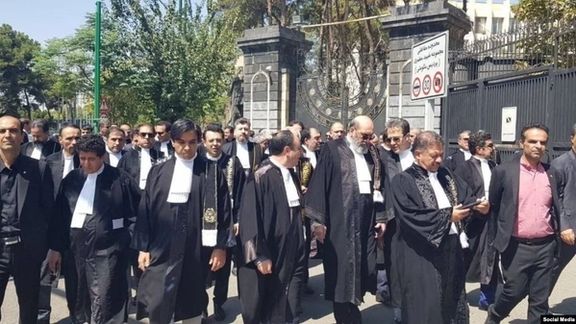
Iranian lawyers remain up in arms and are protesting from various regions after a recent decision by the government to take away their independent authority.

Iranian lawyers remain up in arms and are protesting from various regions after a recent decision by the government to take away their independent authority.
On August 20th, a demonstration, organized jointly by lawyers' association directors and the Central Bar Association, in response to a decision by the parliament to remove their autonomy was met with security forces who attempted to prevent their protests outside the parliament building.
The protesters were denied access to their mobile phones, which were confiscated and they were barred entry. This is directly in conflict with the independence and autonomy of the associations in Iran, which has been in place for more than seven decades.
Previous protests have taken place in front of the Guardian Council's premises, and further protests at the parliament building are planned against the decision that transfers key authorities held by lawyers' associations – including license issuance and exam conduction – to the Ministry of Economy and Finance.
This increased security and quelling of freedom of speech aligns with intensified measures by the regime to discourage possible protests ahead of the anniversary of last year’s nationwide uprising, ignited by the death of Mahsa Amini in police custody.
More than 500 protesters were killed and over 22,000 were arrested during the regime’s crackdown. Although protesters were given harsh sentences and were denied legal representation and due process in most cases, independent lawyers were the only hope of the prisoners to have their voices heard in Iran and abroad.
Bar associations, as long-standing professional and legal institutions in Iran, have consistently encountered pressures from governmental bodies and the judiciary, and have gradually lost authority as the regime has restricted their movements.
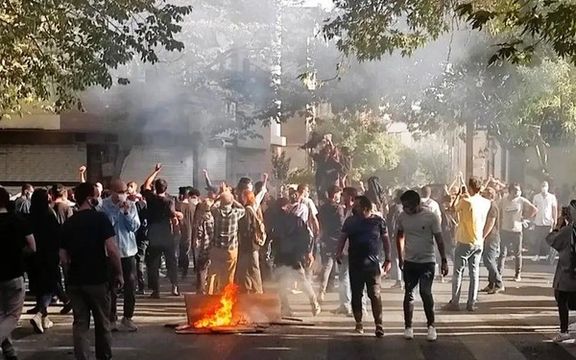
A senior aide to Iran's Supreme Leader asserts that the regime remains firmly entrenched in a fortress, guarded by a devoted religious group under all circumstances.
Gen. Yadollah Javani, formerly known as the Political Deputy to the IRGC Commander and presently serving as the Deputy for Political Affairs for Ali Khamenei within the IRGC, addressed a gathering aimed at "strengthening the Basij militia." He conveyed that the Israeli evaluation of the 2022 protests in Iran indicated their disregard for the potency, authenticity, and social deterrent capabilities of religious Iranians.
Entekhab website in Tehran quoted Javani at the gathering in Mashhad that the enemies wanted to sow despair among the Iranian people and officials and suggested that the government should free their minds from the clutches of the enemy.
The use of jargon in this context suggests that Javani was deeply affected by the extensive protests that occurred throughout Iran over a span of several months. Social media analysts have pointed out that the General appears to believe that the people supporting the current regime are a minority group and that they are surrounded by a larger opposition movement.
Javani's comment also sounded like a confession to the fact that the regime depends on this minority for its survival.
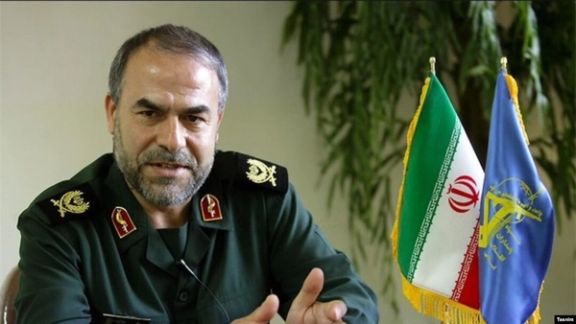
Meanwhile, borrowing Khamenei's idea of the "explanation jihad," Javani called for propagating the regime's narrative about the protests, mindless of the fact that this narrative may maintain the regime's current supporters in the "fortress," but it is unlikely to convince other Iranians to join them. There are also indications that as Iranian sociologists have been warning, some of those who are leaving Iran are disillusioned former regime supporters.
The IRGC General suggested that the regime should propagate former IRGC Qods Force Commander Qasem Soleimani's school of thought. However, no matter what Soleimani's school of thought was, what most Iranians remember about him are the stories of giving suitcases full of cash handouts to terrorist groups in the Middle East.
He went on to assert that following the collapse of the Soviet Union, the Islamic Republic effectively thwarted the United States' aspirations of global dominance. Javani further contended that the "Woman, Life, Freedom" movement aimed to cultivate animosity among Iranian youth towards individuals of religious faith.
Contrary to this, the prevailing viewpoint among a majority of pundits and politicians is that the government's inability to effectively address the nation's economic challenges served as a significant catalyst for the burgeoning opposition among the youth. This sentiment is compounded by the perception that the authorities are erecting various barriers that impede young Iranians from pursuing their preferred lifestyles.
Meanwhile, mirroring Javani's statement, another event highlighted the evident apprehension among Iranian officials as the anniversary of Mahsa Amini's death in custody in September 2022 draws near. In an interview, Deputy Judiciary Chief Sadeq Rahimi issued a warning, stating that Iranian intelligence agencies are prepared to identify individuals potentially inclined to participate in street protests in the upcoming days.
Rahimi particularly warned former detained protesters who were freed after serving some time in jail that their behavior will be scrutinized by security and intelligence officers.
Many of these individuals who were apparently pardoned by Khamenei, were arrested again after a few weeks and others, including the family members of those who were killed or blinded during the protests were arrested and jailed during the past few weeks.
Rahimi claimed without naming anyone or any country or presenting any evidence that "the enemies" are planning to disrupt peace and security in Iran during the coming weeks by provoking Iranian youths and creating problems for the people and the regime.
Neither Javani nor Rahimi addressed the core issues of economic challenges and constraints on social freedoms, which experts widely consider to be the primary driving forces behind the massive street protests by Iranians against the regime. These crucial factors have led millions to voice their discontent and take to the streets.
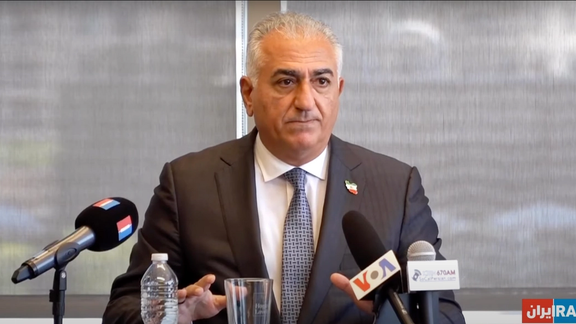
Iran's exiled prince has urged Iranians across the nation and around the world to hold protests in commemoration of the anniversary of Mahsa Amini's tragic killing.
Speaking during a meeting with reporters in Los Angeles, Prince Reza Pahlavi a prominent opposition leader, emphasized that the focus of these protests should extend beyond Tehran, encompassing all regions of Iran.
Pahlavi asserted that should protests proliferate across different regions of Iran, the Islamic Republic could find itself obligated to distribute its repressive forces to various areas. He argued that this dispersal would potentially enhance the effectiveness of countermeasures against governmental forces.
Mahsa Amini, a 22-year-old woman was arrested in the street by Iran’s morality or hijab police in mid-September and hours later was transferred to hospital with fatal head injuries, where she died three days later. The news immediately sparked nationwide protests, which lasted for five months and posed the most serious challenge to the Islamic Republic in its 44-year history.
Prince Pahlavi outlined the significance of Mahsa Amini's anniversary, highlighting it as an exceptional opportunity to strengthen the resolve of the people and sustain the momentum of protests and strikes against the Islamic Republic. He also emphasized that this movement's progress would experience both ebbs and flows, underscoring the difference between a campaign and a cause.
Describing the combination of protests and strikes as a potent strategy in confronting the Islamic Republic, he noted: "In my view, more than calling [the movement] a campaign, I think it's really a cause."
Prince Reza Pahlavi pointed out the considerable number of Iranians living abroad, stating, "We have more than eight million Iranians living abroad; if you take 10% of those to be active participants in the movement, it will change the entire dynamic."
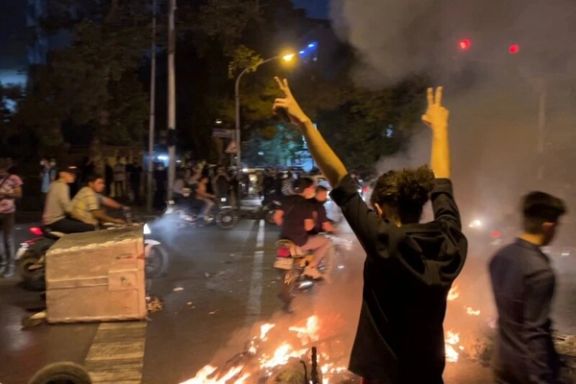
He called on democratic countries worldwide to support Iranians in their journey towards democracy, noting the shared values of human rights, freedom, and an end to discrimination, which stand in stark contrast to the Iranian regime's stance.
Concurrently, 27 international groups and organizations have united in a call for a global gathering on September 16, coinciding with the first anniversary of Mahsa Amini's tragic death. These groups are urging global unity on this significant occasion, setting the stage for demonstrations in various cities and countries worldwide.
However, amidst the buildup to the anniversary, The Wall Street Journal has highlighted the Iranian government's intensified efforts to suppress protesters and activists. This crackdown reflects the government's deep-seated concerns that the intensity of the protest movement remains undiminished.
Mahmoud Amiri-Moghaddam, the director of Iran Human Rights, disclosed that the government is targeting individuals who may have been leaders or participants in past protests during this anniversary period.
According to the latest report by the United Nations High Commissioner for Human Rights, released on August 8, over 20,000 individuals have been arrested by agents of the Islamic Republic since the inception of the revolutionary uprising. These arrests pertain to participation in or support for the protests. Many of those detained have been granted temporary release on bail, while their cases remain pending within security organizations. Hundreds have also been re-arrested.
As global attention remains on Iran's human rights situation, Antonio Guterres, the Secretary-General of the United Nations, has recently called for immediate action by the Iranian government. He has emphasized the need to halt executions, release political prisoners of conscience, human rights activists, lawyers, and journalists in the country.
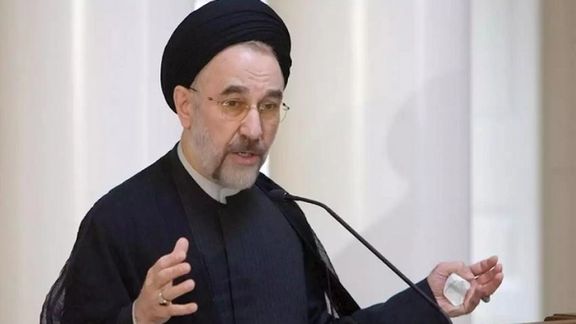
Former President and reform leader Mohammad Khatami says the Iranian regime should acknowledge its mistakes and rectify them; otherwise, it will face destruction.
According to Rouydad24, Khatami made this assertion during a meeting with former Islamist political prisoners. He added that "with this system of government, Islam, Iran and the Iranian people are likely to sustain irreparable losses."
Khatami advised Iran's reformists to "stand by the people and try to understand their problems and simultaneously convey to the government that it is treating the people poorly."
Praising the Iranian middle class as the driving force of the country, Khatami noted that the current government has pushed the middle class into the underprivileged strata of the society. He further mentioned that a portion of the Iranian middle class has emigrated, while those who remain are grappling with various issues.
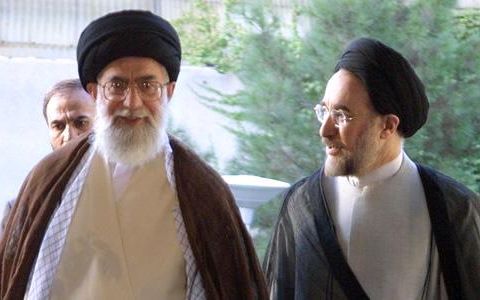
Expressing his frustration, Khatami stated, "The people are not slaves. Entrust political power to someone capable of addressing people's needs and responding to their demands. And if you plan to exert force openly, do not do so in the name of Islam." This marks one of Khatami's harshest criticisms of the system's inefficiency.
Khatami also remarked that the Islamic Revolution aimed to establish a republic akin to those in the rest of the world, aiming to eliminate backwardness, exploitation, and colonialism. These were the people's demands since the 1906 constitutional revolution, he noted. Khatami further added that the people would not have voted for the Islamic Republic in 1979 had they known this system would reject their vote, rule, and parliament.
Regarding the Iranian rulers' interpretation of Islam, Khatami stated it is incompatible with democracy and has led to various inefficiencies. He elaborated, "The Assembly of Experts was designed to appoint and dismiss the Supreme Leader and oversee their performance, and the Guardian Council was established to safeguard against misuse of people's votes. However, they were not meant to make decisions for the people."
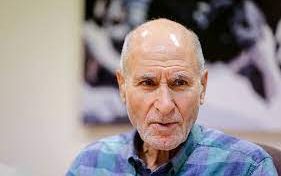
Khatami clarified that he is not against the Islamic Revolution or the Islamic Republic but reiterated that the latter should rectify itself to become a government that promotes welfare and justice. He underscored that Iran currently lacks "good governance."
Meanwhile, in an interview with Agahi Now magazine, the former leader of Iran's Reform Front Behzad Nabavi also expressed his support for the regime by stating "We do not intend to destroy the structure of the regime. He added that Khatami speaks about politics based on contemporary requirements, while noting, "I expressed different views and faced harsh criticism from the public." He mentioned that during last year's protests, people no longer even listened to former Prime Minister Mir Hossein Mousavi, who was once revered.
Millions of disgruntled Iranians who protest in the streets or form “the silent majority” have lost trust in the regime as a whole, including reformists who are still loyal to the system after trying for more than a quarter of a century to make it more rational and democratic.
Although the interview was also published by several online media outlets, portions that were missed or deliberately overlooked by Iranian websites emerged on social media. According to some social media accounts, Nabavi criticized the election of Azar Mansouri, a woman, as the leader of the Reform Front stating, "Electing a woman to this position is unlikely to attract young Iranians to the reform camp.”
Referring to the impact of the 2022 protests on reformists, Nabavi said, "During the protests, some reformists concluded that the situation was evolving and attempted to prepare themselves for the next step by critiquing the system. However, he noted, "No one listens to reformists anymore, even those who have novel ideas."
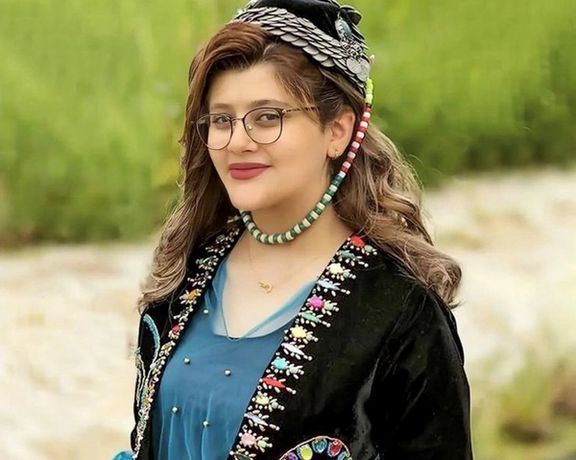
Iranian conservative Asadollah Badamchian claimed without evidence Mahsa Amini, who died in morality police custody, supported the a Kurdish militant group.
Badamchian, who is a long-time regime insider, accused the symbol of the antiregime movement of being a part of the Kurdish Komala Party three weeks before her death anniversary, expected to be a tumultuous period in Iran.
The Islamic Republic designates Kurdish armed groups operating in western provinces of Iran as either "terrorist groups" or "anti-revolutionary." These groups, however, assert that their armed campaigns are aimed at "defending the rights of the Kurds."
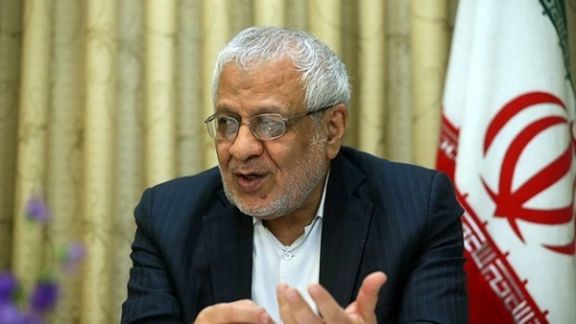
Badamchian in an interview with ILNA alleged that there exists a photograph depicting Mahsa Amini engaged in dancing with the Komala Party.
Badamchian tried to defend Amini's arrest by the morality policy last September, saying that "she was inappropriately dressed." During this process, Amini became visibly agitated, subsequently collapsing and passing out. Subsequent to these events, an organized movement, both domestically and internationally, emerged involving media outlets such as BBC, CNN, Manoto TV, and Zionists, alleging that Mahsa Amini had been fatally harmed by the morality police.”
Mahsa Amini received fatal head injuries during the brief period she was under arrest.
Badamchian, a hardline principlist politician with two parliamentary terms to his name, and a founding member of the Islamic Coalition Party, even claimed that the regime exhibited some “leniency” toward Mahsa Amini.
Amidst the fallout from Mahsa Amini's tragic incident, a series of protests erupted, resulting in the loss of over 500 lives at the hands of the regime's agents. Approximately 22,000 arrests were made, with seven executions and additional death sentences on dubious charges casting a shadow over the broader discourse.

Iran's Judiciary has called on the US government to pay $330 million in compensation for its alleged role in the Nojeh coup plot against Iran's regime in July 1980.
Widely referred to as the Nojeh Coup, the Saving Iran's Great Uprising was a scheme aimed at toppling the recently formed clerical regime Iran, along with its leadership under President Abolhassan Banisadr and Ruhollah Khomeini.
The plot, which was never executed, involved officers of Iran's royal army and civilians opposed to the Islamic Republic. This is the first time that the Iranian regime is accusing the United States of involvement in the plot.
According to the court verdict, the US government has been sentenced to pay $30 million for material and moral damages to the plaintiffs and $300 million for punitive damages.
The judiciary media center announced Saturday that “an open court session was held last month to address the claims of the families of the victims of the coup incident. The session took place at a judicial complex in Tehran, with the presence of survivors and those affected by the incident.”
The coup plot involved personnel from infantry, air force, army, and secret service of the Shah. It was largely foiled by the arrest of numerous officers on July 9-10, 1980, at Nojeh Air Base near Hamedan, west of Iran.
The demand from the Iranian regime comes in the wake of a deal with the Biden administration earlier this month to unblock $6 billion of Iran's frozen funds in exchange for five US citizens held hostage by Iran.
While Khomeini ordered the execution of those involved, Banisadr employed legal tactics to postpone the executions. With the Iraq invasion, many were released under the pledge of returning to duty. Nonetheless, 144 participants were executed, and 2,000–4,000 military personnel were dismissed.






